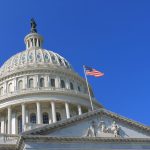Published December 11, 2013
The individual mandate is an awkward subject for Obamacare’s architects and defenders. On the one hand, they recognize that it is the most unpopular provision in the entire law. In polls, large majorities of Republicans and Democrats oppose it, and it’s easy to see why. Its purpose is to coerce people into purchasing insurance plans, generally offered by for-profit companies, that they would rather not buy at all. Voters see it as the perfect symbol of liberal overreach and a heavy-handed government. This, of course, explains why the president and his supporters almost never talk about it.
On the other hand, Obamacare’s supporters believe the mandate is indispensable to making the law work. They are counting on it to bring millions of younger, healthier enrollees into the exchanges — and thus to provide balance against the older and sicker participants who are expected to sign up for coverage more willingly. Obamacare’s staunchest advocates shrug at the president’s unilateral delay of the employer mandate because they think it won’t matter to the overall success or failure of the law. But over the summer, when Republicans began a push to delay the individual mandate too, the law’s defenders circled the wagons and resolved to do whatever was necessary to ensure that no delay or dilution of the mandate would be enacted.
Though the law’s supporters believe the threat of the mandate is critical to forcing people into the Obamacare exchanges, they don’t want to admit this directly to voters. So the mandate is mentioned often in policy circles, but seldom by supporters when communicating in the media or directly to voters. Every once in a while, though, when pressed in more public settings on why they think the young will sign up for coverage, they are forced to admit that it’s due in part to their faith in the mandate — as Zeke Emanuel did on Fox News Sunday over the weekend.
The ambivalent embrace of the mandate by Obamacare’s authors is reflected in the law’s construction. Initially, the mandate’s year-by-year penalties were set at much higher levels, but they were lowered by Democrats on the Senate Finance Committee to protect themselves from political attacks by Republicans. As enacted, the mandate’s penalties are very low, especially relative to the premiums charged by insurers in the exchanges, and especially in the first two years. In 2014, the penalty, or tax, is the greater of (a) a per-person tax of $95 per adult and $47.50 per child, up to a maximum of $285, or (b) 1 percent of total household income. The tax rises to 2 percent of household income in 2015. A typical household of four people with an income of $40,000 will face a mandate tax of $400 in 2014. That compares with premium payments of $1,500 to $3,000 for the typical low-cost insurance offerings, even after the federal subsidies are netted out of the premium costs.
The Democratic authors of Obamacare also limited what the IRS could do to those who don’t pay the mandate’s tax. Normally, the IRS can send threatening letters warning of civil and criminal penalties for noncompliance, or reach into workers’ paychecks to garnish wages sufficient to recoup unpaid tax penalties. But the Democratic authors of Obamacare were fearful of a political backlash if the IRS used these same strong-arm tactics to enforce the individual mandate, so they took those measures out of the IRS’s toolbox. All the IRS can do to collect an unpaid mandate tax is to offset a tax refund otherwise owed to a taxpayer.
What emerged from the legislative process in 2010 was thus an individual mandate that is, by all accounts, weak and very hard to enforce. But will it work anyway?
The law’s defenders say yes. They are betting that the mandate will play out as the behavioral economists say it will. It doesn’t matter if it is weak, these economists argue, so long as it creates an aura of obligation among average Americans. Most people don’t want to feel like they are “breaking the law.” If the mandate is perceived as making enrollment in government-approved insurance compulsory, and the tax is perceived as a penalty imposed on the lawbreakers, then it is possible that large numbers of people who otherwise might opt out of coverage for financial reasons will instead sign up. It is on this theory that Obamacare’s success or failure largely rests.
Of course, it is also the subject upon which the Supreme Court, and particularly Chief Justice John Roberts, had much to say. In the opinion upholding Obamacare, the majority opinion, written by Roberts and joined by the four liberal justices, made it clear that Congress does not have the authority under the Commerce Clause to create an obligation to purchase private health insurance. The only way Obamacare was found to be constitutional was by construing the individual mandate as an optional tax: Citizens could either buy government-approved insurance or pay a tax for being uninsured. Both are legitimate and legal choices that must be left entirely to citizens. In other words, those who choose not buy Obamacare insurance are not lawbreakers at all, but citizens exercising their right to pay a tax instead. An important implication of the Roberts ruling is that the individual-mandate tax can never be raised to such a high level that it would effectively make insurance enrollment compulsory.
The most important unknown about Obamacare is how the “uninsured tax” will be perceived by the public. Will it create a sense of obligatory insurance enrollment, especially among young people? Or it will be viewed as an intrusive but optional tax that people can pay to avoid the high premiums of Obamacare?
One reason to believe it will eventually come to be viewed as an optional tax is the ambivalence of the mandate’s supporters. They know it is essential to making the law work, but they are very reluctant to deliver messages in public that emphasize coercion, because that plays into the hands of the law’s opponents. With few exceptions, therefore, the current push to enroll more people in Obamacare is based mainly on the supposed benefits of signing up, rather than on the penalties that will be imposed on the recalcitrant. The most effective (though inaccurate) message would probably be “Sign up for Obamacare because it’s the law,” but few Obamacare supporters are willing to risk the political backlash that such a message would precipitate.
Obamacare’s opponents were deflated by the Roberts decision upholding the law, and for good reason. The chief justice seemed to go out of his way to allow Obamacare to continue, but his decision was not without consequence for the law. No one is required to purchase government-approved health insurance under Obamacare; as Roberts wrote, Congress did not have the authority to create such an obligation. What the law created was a choice, and it is perfectly legal for citizens to choose not to enroll in an Obamacare insurance plan. Obamacare’s supporters hope this proper understanding of the law never seeps into the public consciousness.
James C. Capretta is a senior fellow at the Ethics and Public Policy Center and a visiting fellow at the American Enterprise Institute.







